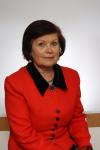References
1. Bochkina N. V. Obrazovatel'nyy kompleks kak forma integratsii v sfere obrazovaniya. SPb., 1997. 123 s.
2. Kudryavtsev V. T. Preemstvennost' stupeney razvivayushchego obrazovaniya: zamysel V. V. Davydova // Voprosy psikhologii. 1998. № 5. S. 59–68.
3. Kustov Yu. A. Didakticheskiy printsip preemstvennosti i metodika ego realizatsii: metod. rekomendatsii dlya studentov-praktikantov i uchiteley-stazherov. Kuybyshev: Kuybyshevskiy ped. in-t, 1987. 20 s.
4. Lazarev V. S. Upravlenie innovatsiyami v shkole. M.: Tsentr pedagogicheskogo obrazovaniya, 2008. 352 s.
5. Leont'ev A. A. Nepreryvnost' i preemstvennost' obrazovaniya // Nachal'naya shkola. Plyus – Minus. 1994. № 4. S. 3–8.
6. Lomakina T. Yu. Sovremennyy printsip razvitiya nepreryvnogo obrazovaniya. M.: Nauka, 2006. 224 s.
7. Novikov D. A., Glotova N. P. Modeli i mekhanizmy upravleniya obrazovatel'nymi setyami i kompleksami. M.: Institut upravleniya RAO, 2004. 142 s.
8. Oreshkina A. K. Metodologicheskie osnovy preemstvennosti obrazovatel'nogo protsessa v sisteme nepreryvnogo obrazovaniya: Avtoref. dis. … d-ra ped. nauk. M., 2009. 45 s.
9. Prosvirkin V. N. Tekhnologiya preemstvennosti v sisteme nepreryvnogo obrazovaniya: Avtoref. dis. … d-ra ped. nauk. M., 2008. 43 s.
10. Shukaeva T. M. Otsenka deyatel'nosti uchrezhdeniy obshchego obrazovaniya po formirovaniyu universal'nykh uchebnykh deystviy // Pedagogicheskoe obrazovanie i nauka. 2013. № 5. S. 54–56.












